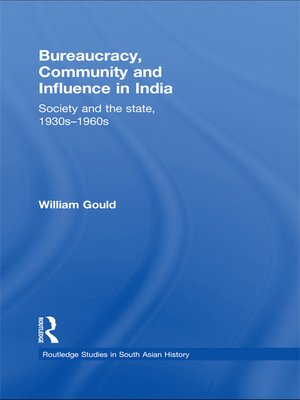Bureaucracy, Community and Influence in India
ebook ∣ Society and the State, 1930s--1960s · Routledge Studies in South Asian History
By William Gould

Sign up to save your library
With an OverDrive account, you can save your favorite libraries for at-a-glance information about availability. Find out more about OverDrive accounts.
Find this title in Libby, the library reading app by OverDrive.



Search for a digital library with this title
Title found at these libraries:
| Library Name | Distance |
|---|---|
| Loading... |
Offering a fresh approach to the issue of government and administrative corruption through 'everyday' citizen interactions with the state, this book explores changing discourses and practices of corruption in late colonial and early independent Uttar Pradesh, India. The author moves away from assumptions that the state can primarily be associated with the top levels of government, and looks at citizens' approaches to local level bureaucracies and police. The central argument of the book is that deeply 'institutionalised' corruption in India could only have come about through the exercise of particular long term customs of interaction between agencies of the state - government servants and police, and their interactions with local politicians. Because the social hierarchies that condition such interactions are complicated by individual and family connections to state employment, periods of traumatic state transformation lead to a reconfiguration in the meaning of corruption in the local state. Based on principal primary sources and extensive field interviews, this book will be of interest to academics working on political science and Indian and South Asian history.







